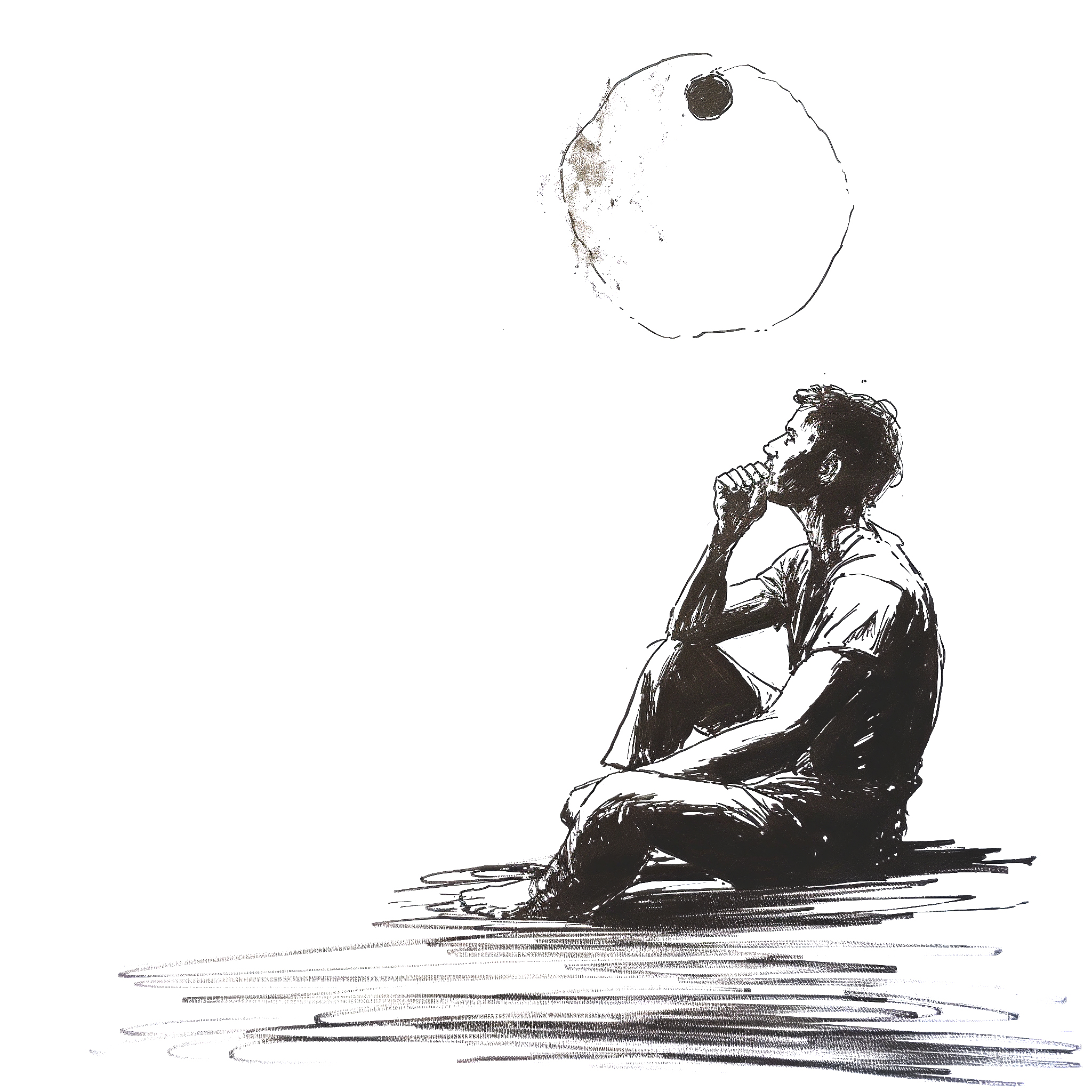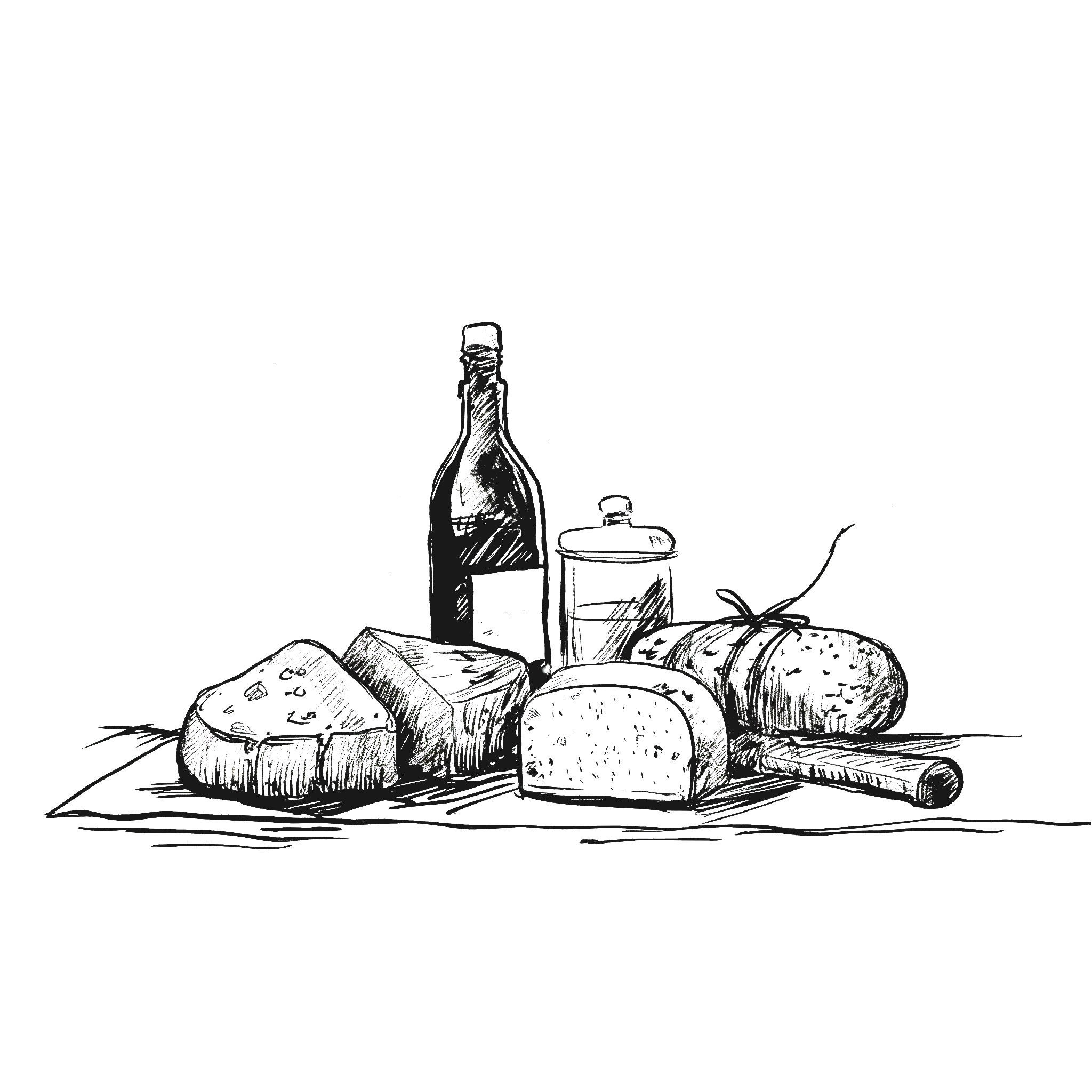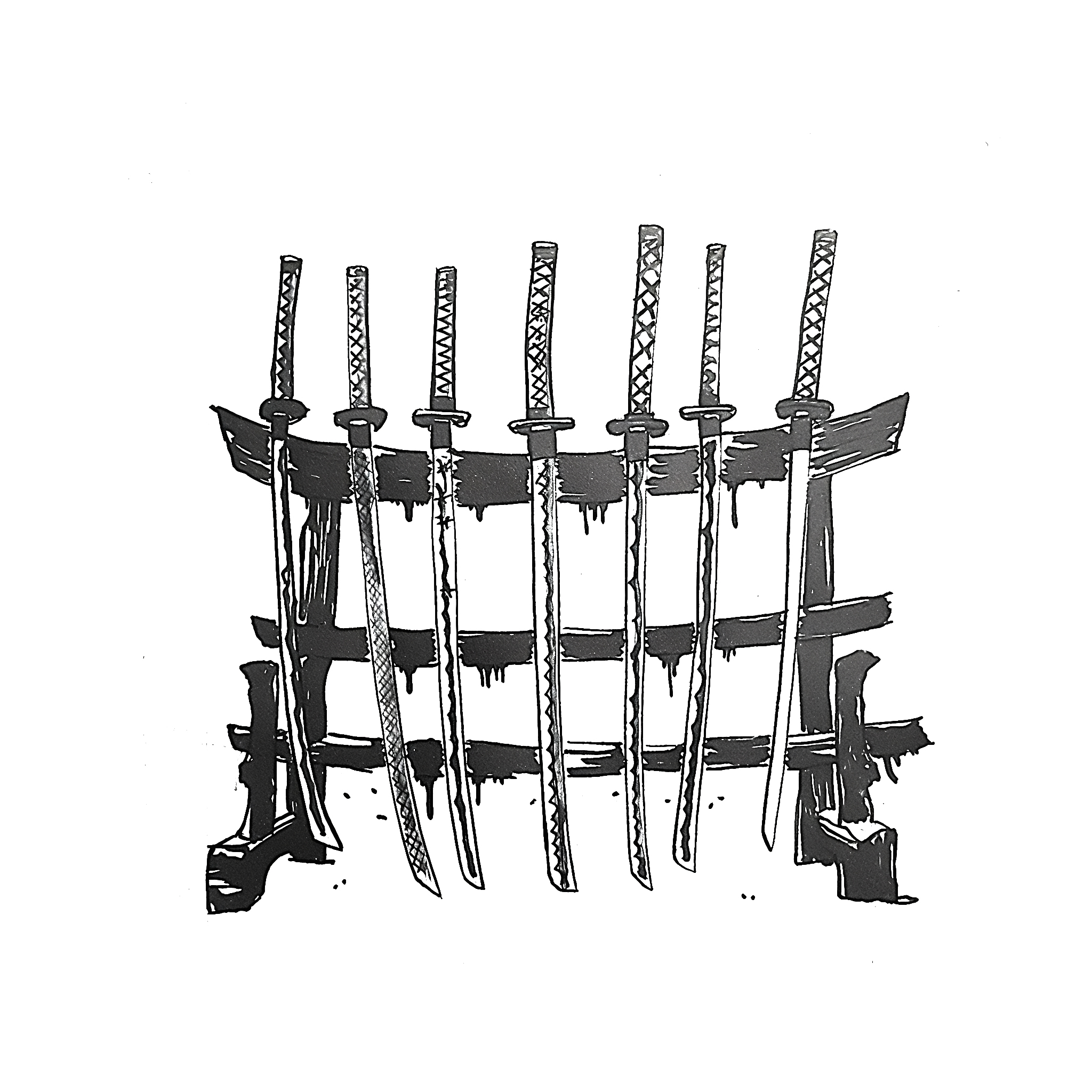Imagine a time when warriors lived by codes as ancient as the mountains, their wisdom etched in the very fabric of their existence. Miyamoto Musashi, a legendary samurai, distilled his life’s insights into twenty-one simple yet profound principles known as the Dokkōdō. These guiding stars, though centuries old, shine as brightly today, offering us a path through the tangled forest of modern life.
In a world where we chase fleeting pleasures, wrestle with endless desires, and stumble under the weight of possessions, Musashi’s teachings whisper a timeless truth. They remind us to find peace in acceptance, joy in simplicity, and strength in humility. These precepts, though ancient, resonate with the rhythms of our daily struggles and aspirations.
Imagine navigating life’s storms with the calm acceptance of a seasoned sailor, or finding fulfillment not in what you possess but in the richness of your experiences. Picture living each day with a heart free from jealousy and regret, guided by clarity and honor. Musashi’s words are not just relics of a bygone era; they are a lantern for our journey, illuminating the way to a life of balance, purpose, and serenity.
So, let us step into the wisdom of the samurai, and discover how these ancient truths can transform our everyday lives, grounding us in a world that often feels chaotic and overwhelming. With Musashi as our guide, we embark on a path of enlightenment, embracing a philosophy that transcends time, touching our hearts with its enduring grace.

In the gentle dance of life, there are moments of joy and sorrow, triumph and defeat. The first precept of the Dokkōdō invites us to embrace each of these moments with open arms, accepting everything just the way it is. This acceptance is not a passive resignation, but a profound acknowledgment of the reality before us. It is the serene acceptance of the river’s flow, understanding that the current, whether swift or slow, is part of the river’s nature.
Acceptance is the cornerstone of inner peace. By acknowledging the present without resistance, we free ourselves from the chains of frustration and disappointment. This concept aligns with the Stoic philosophy, which teaches that while we cannot control external events, we can control our reactions to them. Acceptance allows us to see the world clearly, without the distortions of wishful thinking or denial.
Imagine a student who has just received a disappointing grade on an important exam. Instead of spiraling into despair or anger, the student takes a moment to breathe and accept the situation as it is. This acceptance doesn’t mean they are happy with the grade, but it allows them to move forward constructively. They reflect on their study habits, seek help from a teacher, and make a plan to improve for the next exam. By accepting the reality of their performance, they turn a setback into an opportunity for growth.
Consider the cherry blossom, delicate and fleeting. It blooms without questioning the length of its stay, fully present in its brief moment of glory. When the winds scatter its petals, it does not resist, but gracefully yields to the natural cycle. In this acceptance, there is a profound beauty and wisdom.
In our daily lives, we often face situations beyond our control—traffic jams, sudden rainstorms, or unexpected changes in plans. By practicing acceptance, we can reduce our stress and respond more calmly. The next time you find yourself stuck in traffic, instead of fuming with impatience, take a deep breath and acknowledge the situation. Use the time to listen to an audiobook, reflect on your day, or simply enjoy a moment of stillness. Acceptance transforms the mundane and the frustrating into opportunities for peace and mindfulness.
Through the lens of acceptance, we learn to navigate life with grace, understanding that each moment, whether joyful or challenging, is a part of our journey. By embracing the present just as it is, we unlock a deeper sense of contentment and resilience.

Pleasure is a fleeting shadow, ever elusive. Seek not the transient joys, but the deeper fulfillment that comes from purpose and virtue. This precept invites us to look beyond momentary satisfaction and strive for enduring contentment.
Imagine a person who spends their evenings lost in the glow of their smartphone, scrolling through social media or binge-watching shows. Each like, each episode, offers a brief spark of enjoyment but leaves them feeling empty and unfulfilled when the screen goes dark. Contrast this with someone who dedicates their time to a passion project, be it writing, gardening, or volunteering. Their work may be challenging, but it brings a profound sense of purpose and contentment that far outlasts any momentary thrill.
This idea aligns with the teachings of many wisdom traditions, which caution against hedonism and emphasize the importance of virtue and meaning. Aristotle, for example, distinguished between fleeting pleasures and eudaimonia, or true happiness, which arises from living a life of purpose and moral excellence.
Consider the sun, rising each day not for its own glory, but to give light and life to the world. It burns steadily, unwavering in its duty, finding its fulfillment in the warmth it provides. In this selfless constancy, there is a lesson for us all.
We can apply this precept by shifting our focus from seeking immediate gratification to pursuing activities that enrich our lives and those of others. Instead of indulging in another hour of television, try picking up a book that challenges your mind or engaging in a hobby that fosters creativity. Instead of seeking the thrill of the latest gadget, invest in experiences that build lasting memories and deepen your connections with loved ones.
By not seeking pleasure for its own sake, we cultivate a life of greater depth and satisfaction. We discover that the truest joys come not from what we consume, but from what we create, give, and share. In this way, Musashi’s wisdom guides us towards a more fulfilling and meaningful existence, where each moment is imbued with purpose and grace.

Partial feelings are like clouds, obscuring the clarity of the mind. Depend on complete understanding and unwavering conviction. This precept teaches us to seek a full comprehension of our emotions and situations before taking action.
Imagine standing on a fog-covered mountain path. Each step forward is uncertain, and the way ahead is obscured. Partial feelings are like this fog, distorting our perception and leading us to act impulsively or irrationally. To navigate life with wisdom, we must wait for the fog to clear, for our emotions to settle, and for our understanding to deepen.
This aligns with the concept of mindfulness and emotional intelligence. Observing our feelings without being swept away by them helps us recognize their impermanence and seek a deeper comprehension before acting. The Stoic practice of pausing and examining our initial reactions teaches us that our immediate emotions are often incomplete representations of reality.
Look at the archer who, before releasing the arrow, ensures his aim is true, unclouded by doubt. When feeling angry, take time to understand the root cause and the full context of the emotion. This prevents rash actions that might be regretted later and promotes more thoughtful responses.
We can develop habits of introspection and patience. When faced with strong emotions, take a step back. Engage in practices such as meditation, journaling, or talking things through with a trusted friend or mentor. These practices help to process and integrate our feelings, leading to a more balanced and informed perspective.
By not depending on partial feelings, we cultivate a steadier and more resilient approach to life. We become like the seasoned sailor who navigates by the stars rather than the whims of the wind, charting a course that is true and unwavering.

Humility is the soil in which wisdom grows. Think lightly of your own significance, and deeply ponder the vastness of the world and its intricate tapestry. This precept encourages us to look beyond our own small perspective and appreciate the broader context of life.
The vast, ancient tree standing tall in a forest. It does not boast of its height or age, yet it silently offers shade, shelter, and sustenance to countless creatures. This tree symbolizes the wisdom of thinking lightly of oneself—recognizing that our true value lies not in our self-perception but in our contributions to the world.
When we think lightly of ourselves, we free our minds from the constraints of ego. We become open to learning, growth, and new experiences. This humility allows us to see the world with clearer eyes and a more open heart. We become like the tree, deeply rooted yet expansive in our reach, providing support and understanding to those around us.
The philosopher who, despite his knowledge, approaches each day as a student of life, listens more than he speaks, and marvels at the intricacies of existence, finding joy and wisdom in even the simplest moments. This approach enriches his life and the lives of those he encounters.
This precept aligns with the teachings of many spiritual and ethical traditions that emphasize humility and a sense of interconnectedness. In Buddhism, the concept of “no-self” (anatta) suggests that clinging to a rigid sense of self leads to suffering. By letting go of this attachment, we can experience a deeper connection to all beings and the universe itself.
The night sky, filled with countless stars. Each star shines brightly, yet none outshines the collective brilliance of the cosmos. Thinking deeply of the world invites us to appreciate this vastness, to understand that we are but a small part of a grand, interconnected tapestry.
Shifting our focus outward and cultivating curiosity and empathy can help us apply this precept. Instead of constantly seeking validation or recognition, we can engage in acts of kindness, learn from others, and explore the world with wonder and respect. Volunteer for a cause, travel to new places, or simply spend time listening to someone else’s story. These actions remind us of the richness of the world beyond our immediate concerns.
By thinking lightly of ourselves and deeply of the world, we foster a life of humility, wisdom, and compassion. We become like the quiet sage who, through his humble demeanor and deep insights, illuminates the path for others.

Desire often leads to suffering because it creates a sense of lack and longing. By practicing detachment, we cultivate contentment and inner peace. This precept invites us to release the grip of desire and find freedom in simplicity.
Let’s look at a butterfly flitting from flower to flower. It enjoys the nectar but does not cling to any particular bloom. This butterfly embodies the wisdom of detachment, experiencing the sweetness of life without being ensnared by it.
Detachment from desire does not mean abandoning goals or rejecting joy. Instead, it involves a balanced approach where we engage with life fully but remain unattached to specific outcomes. This perspective aligns with the Buddhist principle of non-attachment, which suggests that clinging to desires leads to suffering, while letting go brings freedom.
What about the artist who creates for the pure joy of expression, rather than for fame or fortune. Their satisfaction comes from the act of creation itself, not from the external rewards. This mindset allows them to remain resilient in the face of criticism and failure, finding fulfillment in the process rather than the result.
This precept encourages us to understand the nature of our desires and the motivations behind them. Are we driven by genuine passion, or are we seeking validation, security, or status? By understanding the roots of our desires, we can learn to engage with them mindfully, allowing us to pursue our goals without becoming enslaved by them.
Imagine a calm lake, reflecting the sky above. The lake does not yearn for the clouds or the sun, but simply mirrors what is present. When we practice detachment, our minds become like this lake, clear and serene, reflecting the beauty of life without clinging to it.
Cultivating mindfulness and gratitude helps us practice this precept. Instead of constantly striving for more, we can appreciate what we have and remain present in the moment. When we set a goal, we can focus on the journey rather than the destination. Celebrate small victories and learn from setbacks without becoming overly attached to the end result.
Engaging in practices like meditation or yoga can help us develop a sense of inner calm and detachment. These practices train our minds to observe our thoughts and desires without getting caught up in them, fostering a deeper sense of peace and well-being.
By being detached from desire, we free ourselves from the endless cycle of craving and dissatisfaction. We become like the butterfly, enjoying the beauty of each moment without being bound by it.

Regret anchors us in the past, preventing us from moving forward. Learn from your actions, but do not dwell in sorrow. This precept teaches us to release the burden of regret, allowing ourselves to grow and progress without being weighed down by past mistakes.
Like the river flowing steadily towards the sea. It encounters obstacles, rocks, and bends, but it never turns back or laments its path. It moves forward, constantly evolving. In the same way, we should flow through life, acknowledging our past actions but not dwelling on them.
Regret is often tied to a fixed mindset, where we believe that past actions define our identity and potential. By embracing a growth mindset, we understand that we are constantly learning and evolving, and our past does not limit our future possibilities.
Do you know the story of a sailor who navigates by the stars, moving forward despite the storms left behind? After making a mistake in a project, rather than wallowing in regret, they analyze what went wrong and apply those lessons to future endeavors to improve and grow.
Releasing regret encourages us to focus on the present and the future. It challenges us to acknowledge our actions and learn from them, but not to let them dictate our current and future happiness. This approach aligns with the Stoic philosophy of amor fati, the love of one’s fate, accepting all events as necessary parts of life’s journey.
Picture a bird in flight, soaring through the sky. It does not regret the paths it has taken but looks forward to the vast expanse ahead. Each flap of its wings propels it forward, guided by the winds and the stars.
Practicing self-compassion and reflection can help us release regret. When reflecting on past actions, approach yourself with kindness and understanding. Acknowledge the lessons learned and consider how you can apply them moving forward. This process transforms regret into a source of wisdom and strength.
Engaging in mindfulness practices can also help us stay present and reduce the grip of regret. By focusing on the here and now, we cultivate a deeper appreciation for life and our ongoing journey. When regret arises, observe it without judgment, then gently bring your focus back to the present moment.
By not regretting what we have done, we free ourselves from the shadows of the past and embrace the light of the present. We become like the river, flowing steadily towards our goals, ever evolving and growing.

Jealousy is a corrosive emotion, eating away at our happiness and poisoning our relationships. This precept advises us to banish jealousy from our hearts, understanding that it harms ourselves and distorts our perception of others.
What a beautiful garden where each flower blooms in its own time and beauty. The rose does not envy the lily, nor does the daisy covet the tulip’s colors. Each flower stands proud in its uniqueness, adding to the garden’s splendor. Similarly, we should celebrate our individuality and the success of others without falling into the trap of jealousy.
Jealousy arises from comparison, a false narrative that others’ achievements or possessions diminish our worth. By appreciating our own strengths and progress, we cultivate contentment and self-respect.
Have you heard of the story of a musician who sees a fellow artist achieve great fame? Instead of succumbing to jealousy, the musician celebrates the other’s success and remains dedicated to their craft, finding joy in the music itself rather than external accolades. This mindset not only preserves their inner peace but also fosters a supportive and harmonious community.
This precept resonates with the concept of mudita in Buddhism, or sympathetic joy, which encourages us to take genuine delight in the happiness and success of others. Transforming potential jealousy into a source of joy and connection enriches our lives and relationships.
Like a clear, still lake reflecting the sky. It does not wish to be the sky; it simply reflects its beauty, content in its role. When we let go of jealousy, our minds become like this lake—serene, reflective, and at peace with our own place in the world.
Shifting our focus to gratitude and self-reflection helps us overcome jealousy. Regularly take time to acknowledge and appreciate your own achievements and qualities. Gratitude journals or daily reflections can help shift focus from what we lack to what we have.
Actively celebrating the successes of others can also reduce feelings of jealousy. When a friend or colleague achieves something, express genuine happiness and congratulate them. This practice not only reduces jealousy but also strengthens your relationships and creates a positive, supportive environment.
By never being jealous, we free ourselves from the chains of comparison and embrace a life of contentment and harmony. We become like the flowers in the garden, each blooming in our own time, adding beauty to the world.

Separation is an inevitable part of life. People come and go, circumstances change, and we must often part with places, objects, and experiences we hold dear. This precept teaches us not to let these separations sadden us, but to embrace the transient nature of life with grace and acceptance.
Imagine a tree in autumn, shedding its leaves. The tree does not mourn the loss but prepares for the stillness of winter and the renewal of spring. In the same way, we should accept separations as natural phases in the cycle of life, understanding that each ending is also a beginning.
Separation often brings sorrow because we cling to the past and fear the unknown future. By accepting separation with equanimity, we can find peace and open ourselves to new experiences and relationships. This aligns with the Buddhist concept of impermanence, which teaches that all things are transient and that accepting this truth leads to liberation from suffering.
Like a student who graduates and leaves behind friends and familiar surroundings. Instead of succumbing to sadness, they cherish the memories and look forward to the opportunities ahead. This perspective allows them to carry the past with fondness while fully embracing the future.
Accepting separation encourages us to cultivate a mindset of resilience and openness. It teaches us to appreciate the present moment without becoming overly attached to it. This balance helps us navigate life’s inevitable changes with poise and grace.
What about the ocean waves, constantly rising and falling? Each wave is unique, yet none remains forever. The sea does not grieve the passing of each wave but continues its eternal dance. When we adopt this mindset, we can face separations with a sense of continuity and flow.
Developing healthy coping mechanisms and fostering a positive outlook helps us apply this precept. When faced with separation, focus on the positives and the possibilities it brings. Engage in activities that bring joy and fulfillment, and surround yourself with supportive people who uplift you.
Mindfulness and meditation practices can also help us process feelings of sadness and foster acceptance. By staying present and observing our emotions without judgment, we can let go of attachments and find peace in the moment.
By not letting ourselves be saddened by separation, we cultivate a resilient and open-hearted approach to life. We become like the autumn tree, gracefully letting go and preparing for new growth.

Resentment and complaint are like poison, seeping into our minds and hearts, corroding our peace and happiness. This precept advises us to avoid these toxic emotions, whether directed at ourselves or others, and to foster a mindset of understanding and acceptance.
Look at a clear, flowing river! When resentment and complaints enter our minds, it is like throwing stones into this river, disturbing its natural flow and creating turbulence. By releasing these negative emotions, we allow our inner river to run smoothly, fostering clarity and tranquility.
Resentment often stems from unmet expectations and perceived injustices, while complaints arise from focusing on what is wrong rather than what is right. To transcend these feelings, we must shift our perspective, recognizing that holding onto negativity only prolongs our suffering.
Consider the story of a worker who feels overlooked for a promotion. Instead of harboring resentment towards their colleague or complaining about the unfairness, they choose to focus on self-improvement and seek feedback to enhance their skills. This proactive approach not only benefits their personal growth but also fosters a positive work environment.
Letting go of resentment and complaint encourages us to focus on the present and the future. It challenges us to acknowledge our feelings and learn from them, but not to let them dictate our actions or attitudes. This approach aligns with the principles of mindfulness and emotional intelligence.
What a magnificent garden filled with vibrant flowers! If we spend all our time focusing on the few weeds, we miss the beauty and joy that the garden offers. By shifting our focus from the negative to the positive, we nurture a more fulfilling and harmonious life.
Practicing gratitude and reframing our thoughts helps us release resentment and complaint. Regularly take time to acknowledge and appreciate the positive aspects of your life. Keeping a gratitude journal or engaging in daily reflections can help shift focus from negativity to positivity.
Constructive communication and forgiveness are also key. When conflicts arise, address them directly and constructively, seeking resolution rather than dwelling on grievances. Forgiveness, both of ourselves and others, allows us to move forward without the weight of past hurts.
By avoiding resentment and complaint, we cultivate a life of greater harmony and resilience. We become like the clear river, flowing smoothly and reflecting the beauty around us.

Love and lust are powerful emotions that can greatly influence our actions and decisions. This precept advises us not to let these feelings guide us blindly, but to maintain clarity and balance in our relationships and pursuits.
Like a ship navigating the open sea. If it is solely driven by the currents of love or lust, it can easily lose its course, drifting aimlessly or crashing into unseen dangers. However, with a steady hand at the helm, guided by both passion and reason, the ship can navigate safely and reach its destination.
Lust is often a fleeting, intense desire that can cloud our judgment, leading to impulsive and sometimes regrettable actions. Love, while deeper and more enduring, can also lead to attachment and possessiveness if not balanced with wisdom. This precept teaches us to appreciate these emotions without being overwhelmed by them, ensuring our actions align with our values and long-term well-being.
Imagine a person who falls deeply in love and neglects their responsibilities, friendships, and personal growth. While love is a beautiful and enriching emotion, allowing it to dominate their life can lead to imbalance and eventual regret. By maintaining perspective and ensuring that their love complements rather than overshadows other aspects of their life, they create a healthier, more sustainable relationship.
This approach resonates with the concept of emotional intelligence, which involves understanding and managing our emotions to make rational and beneficial decisions. Aristotle spoke of the “golden mean,” the virtuous balance between extremes. In the context of love and lust, this balance allows us to experience these emotions fully without being controlled by them.
Developing self-awareness and mindfulness helps us navigate these powerful emotions. When experiencing strong feelings of love or lust, take time to reflect on your actions and decisions. Ask yourself if they align with your values and long-term goals. Engage in activities that ground you, such as meditation, journaling, or discussing your feelings with a trusted friend or mentor.
Setting healthy boundaries is also crucial. Ensure that your relationships enhance rather than consume your life. Pursue your passions and maintain connections with friends and family, allowing your life to be enriched by love without being dominated by it.
By not letting ourselves be guided by the feelings of lust or love, we create a balanced and fulfilling life. We become like the ship with a steady hand at the helm, navigating the seas of emotion with wisdom and grace.

Preferences can narrow our vision, tying us to specific outcomes and leading to disappointment when reality diverges from our expectations. This precept encourages us to release our attachments to particular desires and outcomes, embracing life with openness and equanimity.
Look at a willow tree, bending gracefully in the wind! Unlike the rigid oak that might break under pressure, the willow remains resilient because it does not resist the natural flow. By having no fixed preferences, we too can remain adaptable and resilient in the face of life’s changes.
Having no preferences does not mean living without desires or goals. It means not becoming attached to specific outcomes and being open to the myriad possibilities life presents. This mindset aligns with the Taoist philosophy of wu wei, or effortless action, where one flows with the natural rhythms of life without forceful striving.
What about a traveler who plans a journey with a specific itinerary but encounters unexpected detours? Instead of clinging to their original plan and feeling frustrated, they embrace the new path with curiosity and openness, discovering unexpected joys and experiences. This flexibility allows them to find fulfillment in the journey itself, rather than just the destination.
This precept invites us to cultivate a mindset of acceptance and presence. By letting go of rigid preferences, we free ourselves from the anxiety and stress that come from trying to control every aspect of our lives. We become more present, appreciating each moment as it comes.
Picture a clear sky that embraces both the sun and the rain, the calm and the storm. It has no preference for sunny days over cloudy ones, and in this acceptance, it holds space for all weather. Similarly, when we release our preferences, we create space for all of life’s experiences, finding beauty and value in each one.
We can practice this precept by developing habits of mindfulness and cultivating a sense of curiosity. When you notice a strong preference arising, take a moment to reflect on it. Ask yourself why you desire a particular outcome and how you might respond if things turn out differently. Embrace the mindset of a learner, open to whatever the universe presents.
Engaging in activities that promote flexibility and adaptability can also help. Travel, try new hobbies, meet diverse people, and expose yourself to different perspectives. These experiences expand your comfort zone and help you appreciate the richness of life without clinging to specific expectations.
By having no preferences, we cultivate a life of greater freedom and joy. We become like the willow tree, bending with the winds of change and finding strength in our flexibility.

Home is not a place but a state of mind. This precept teaches us to find peace and happiness within ourselves, regardless of our surroundings. By being indifferent to where we live, we cultivate inner stability that transcends physical location.
Picture a nomadic traveler who finds joy and contentment in the journey itself, appreciating each new environment without attachment to a single home. This traveler embodies the wisdom of finding home within oneself, being at peace wherever they are.
Contentment should not be tied to a particular place. By developing a sense of inner peace, we can feel at home anywhere. This perspective aligns with the Stoic philosophy of focusing on what we can control—our inner state—rather than external circumstances.
Like a person who moves frequently for work. Each new city brings challenges and opportunities. Instead of yearning for a permanent home, they embrace each place as part of their journey, finding joy and fulfillment in the experiences and connections they make along the way. This mindset allows them to feel at home wherever they are.
This precept invites us to detach from the idea that happiness and contentment are tied to a specific place. It encourages us to develop inner resources—such as resilience, adaptability, and mindfulness—that allow us to thrive in any environment. This approach can lead to a more fulfilling and grounded life, as we learn to draw strength from within.
Look at a tree with deep roots. Though its surroundings may change with the seasons, its strength and stability come from within. By cultivating deep roots of inner peace and resilience, we can remain grounded and serene, regardless of where we are planted.
We can cultivate this sense of inner stability by developing habits and practices that foster inner contentment and adaptability. Engage in activities that ground you, such as meditation, journaling, or yoga. Build a strong support network of friends and loved ones who provide emotional stability, no matter where you are.
Adopting a minimalist approach to possessions and lifestyle can also help. When we are not overly attached to material things or specific locations, it becomes easier to adapt to new environments. This mindset helps us to be more flexible and open to change.
By being indifferent to where we live, we cultivate a sense of inner stability and peace that transcends physical location. We become like the nomadic traveler, finding home in the journey itself, and the tree, grounded and serene in any season.

Food, while essential for sustenance, can become a source of distraction and overindulgence if we focus too much on its pleasures. This precept teaches us to appreciate the simplicity of nourishment and avoid being consumed by sensory pleasures.
Look at the monk who eats plain, nourishing meals each day. He finds contentment not in the variety or richness of the food but in its ability to sustain him. This monk embodies the wisdom of simplicity and moderation, understanding that the pursuit of extravagant tastes can lead to unnecessary desire and attachment.
This precept does not mean that we should not enjoy our meals, but rather that we should not let the pursuit of culinary pleasures dominate our lives. It aligns with the principles of moderation and mindfulness found in many philosophical and spiritual traditions. By appreciating the basic nourishment that food provides, we cultivate a sense of gratitude and simplicity.
Do you know any person who spends excessive time and money seeking out gourmet experiences, often neglecting other aspects of their life? In contrast, someone who enjoys simple, wholesome meals finds joy in the act of eating without being consumed by it. They appreciate the nourishment and energy food provides, allowing them to focus on other meaningful pursuits.
This precept encourages us to practice temperance and mindfulness. It teaches us to enjoy the present moment without becoming attached to fleeting pleasures. This approach aligns with the Stoic virtue of moderation, which emphasizes self-control and the avoidance of excess.
Imagine a clear mountain stream, flowing steadily and purely. It is not concerned with the opulence of its surroundings but is content with its natural course. By adopting a similar approach to food, we maintain our clarity and focus, free from the distractions of excessive desire.
We can embrace simplicity in our diet by choosing wholesome, nutritious foods that support our health and well-being. This not only benefits our physical health but also fosters a sense of contentment and moderation.
Instead of constantly seeking gourmet meals, savor the simple flavors of a home-cooked meal, finding satisfaction in its basic nourishment. Practicing gratitude for each meal, appreciating its role in sustaining your body and mind, helps shift your focus from indulgence to appreciation.
By not pursuing the taste of good food, we cultivate a life of simplicity and gratitude. We become like the monk who finds contentment in the essentials, free from the distractions of excess.

Possessions can provide comfort and security, but they can also become burdens if we cling to them unnecessarily. This precept teaches us to let go of possessions we no longer need, encouraging a life of simplicity and freedom.
Look at a bird that carries only what it needs to survive, soaring freely across the skies. It does not hoard unnecessary items, allowing it to navigate the world unencumbered. This bird exemplifies the freedom and lightness that come from letting go of excess possessions.
Holding on to unnecessary possessions can clutter our lives and minds, creating physical and emotional weight. By releasing what we no longer need, we create space for growth, clarity, and new experiences. This precept aligns with minimalist principles and the Buddhist practice of non-attachment, which teaches that clinging to material things can lead to suffering.
Consider the story of a person who moves to a smaller home. Initially overwhelmed by the need to downsize, they begin to sort through their belongings, keeping only what is essential and meaningful. They donate, recycle, or discard the rest, and as they do, they feel a growing sense of relief and liberation. Their new, uncluttered space brings them peace and joy, reflecting their inner transformation.
This precept invites us to examine our relationship with material possessions. It challenges us to consider what we truly need versus what we accumulate out of habit, fear, or societal pressure. By prioritizing the essentials, we align our lives with our values and goals.
Like a tree shedding its leaves in autumn. The tree does not hold on to what is no longer needed; instead, it lets go, trusting that new growth will come in due time. This natural cycle of release and renewal teaches us the importance of embracing change and letting go of what no longer serves us.
Regularly decluttering and being mindful of consumption helps apply this precept. Periodically review your possessions and ask yourself if each item serves a purpose or brings you joy. If not, consider letting it go. Donate items that are still useful to others, recycle what you can, and responsibly dispose of the rest.
Adopting a mindset of mindful consumption means being intentional about what you bring into your life. Before acquiring new items, consider whether they are truly necessary and how they align with your values and needs. This practice helps prevent the accumulation of excess and fosters a sense of contentment with what you have.
By not holding on to possessions we no longer need, we cultivate a life of simplicity and freedom. We become like the bird, soaring unencumbered, and the tree, embracing the cycle of growth and release.

Customary beliefs are often inherited from society, culture, and tradition without question. This precept encourages us to challenge these beliefs and not follow them blindly. Musashi’s wisdom here is about fostering independent thought and critical thinking, allowing us to carve our own paths in life.
Imagine a stream that cuts its own course through the landscape, undeterred by obstacles and established paths. This stream symbolizes the strength and resilience of forging your own way, guided by personal insight and understanding rather than convention.
Acting according to customary beliefs can stifle creativity and limit personal growth. By questioning and critically evaluating these beliefs, we open ourselves to new perspectives and possibilities. This mindset aligns with the philosophical tradition of skepticism, which values inquiry and evidence over dogma and tradition.
Consider the story of a young artist who grows up in a family that values traditional careers over creative pursuits. Despite societal pressure, the artist follows their passion, questioning the customary belief that only certain careers are valuable. Through perseverance, they find success and fulfillment in their chosen field, demonstrating the importance of staying true to oneself.
This precept invites us to practice autonomy and self-reflection. It challenges us to examine our beliefs and actions, asking whether they are truly our own or merely adopted from external influences. By doing so, we align our lives with our authentic selves.
Look at a forest with diverse trees, each growing in its unique direction and shape. The forest thrives not because all trees follow the same pattern but because of the diversity and individuality of each tree. Similarly, our society flourishes when individuals think independently and contribute their unique perspectives.
Cultivating a habit of critical thinking and self-reflection helps apply this precept. When confronted with a belief or tradition, take time to question its origins and relevance to your life. Consider whether it aligns with your values and experiences. This practice helps you make more informed and authentic decisions.
Engage in continuous learning and exploration. Read widely, seek diverse viewpoints, and engage in thoughtful discussions. By exposing yourself to different ideas and challenging your assumptions, you expand your understanding and develop a more nuanced perspective.
By not acting following customary beliefs, we foster a life of authenticity and intellectual freedom. We become like the stream that carves its own path, and the forest that thrives in diversity.

In a world where power and strength are often equated with the accumulation of weapons, Musashi’s sixteenth precept offers a refreshing perspective. It advises against collecting weapons or practicing with them beyond what is necessary, emphasizing the importance of practicality and restraint over excess and show.
Like a master swordsman who owns only one sword, yet wields it with unparalleled skill and precision. This swordsman understands that true strength comes not from the quantity of weapons but from the mastery of their use. This wisdom underscores the value of focus, discipline, and efficiency.
Collecting weapons for the sake of display or status can lead to a false sense of security and an inflated ego. By focusing only on what is useful, we cultivate a mindset of purpose and intentionality. This precept aligns with the principles of minimalism and functionalism, which advocate for simplicity and the elimination of excess.
Consider the story of a martial artist who dedicates years to mastering a single weapon. Instead of being distracted by a vast arsenal, they perfect their technique and understanding, becoming a true expert. Their focused approach leads to deep skill and profound knowledge, far surpassing the superficial prowess of those who scatter their attention across many weapons.
This precept invites us to examine our relationship with power and material possessions. It challenges the notion that more is better and encourages us to find value in mastery and purpose. This approach aligns with the Zen principle of simplicity and the Stoic virtue of temperance, which emphasize moderation and the pursuit of true excellence.
Imagine a craftsman who owns only a few, well-chosen tools. Each tool is meticulously maintained and used to its fullest potential, creating works of exceptional quality. By not collecting unnecessary tools, the craftsman focuses on honing their skill and producing meaningful work.
Evaluating our possessions and activities through the lens of necessity and purpose helps apply this precept. Focus on what truly serves you and supports your goals. Avoid the temptation to accumulate items or skills that do not add real value to your life.
Engage in deliberate practice and continuous improvement. Rather than spreading your efforts thin, concentrate on developing deep expertise in a few areas. This focused approach leads to greater proficiency and fulfillment.
By not collecting weapons or practicing with them beyond what is useful, we cultivate a life of focus and intentionality. We become like the master swordsman, wielding our skills with precision and purpose, and the craftsman, producing quality work with a few essential tools.

Death is a fundamental aspect of the human experience, an inevitable conclusion to our journey. This precept encourages us not to fear death, teaching us to live fully and embrace each moment without being paralyzed by the fear of the end.
Picture a samurai standing on the battlefield, fully aware of the possibility of death but unfaltering in their purpose. This samurai embodies the courage and acceptance that come from understanding that death is a natural part of life. By confronting the fear of death, they are free to act with clarity and honor.
Fearing death can limit our experiences and cause unnecessary anxiety. By accepting its inevitability, we can focus on living meaningful and fulfilling lives. This precept resonates with the teachings of many philosophical traditions, including Stoicism and Buddhism, which encourage us to embrace mortality as a way to enrich our existence.
Have you ever seen a person who, after a serious illness, gains a new appreciation for life? They no longer take their days for granted and seek to live more fully, pursuing passions and spending time with loved ones. This renewed perspective allows them to experience life with greater depth and joy, free from the constant fear of death.
This precept invites us to cultivate a mindset of acceptance and presence. It challenges us to acknowledge the transient nature of life and find beauty and purpose within it. This perspective aligns with the Stoic practice of memento mori, or “remembering death,” which encourages us to live with greater intention and virtue.
Picture a blooming flower, radiant and full of life, even though its petals will eventually wither. The flower does not despair over its impermanence; it simply blooms with all its might. By embracing our mortality, we can live more vibrantly and authentically, like the flower in full bloom.
Reflecting on our mortality and considering how it influences our choices and priorities helps us apply this precept. Engage in activities that bring meaning and fulfillment, and cultivate relationships that enrich your life. Practicing mindfulness and meditation can also help us stay present and appreciate each moment without being consumed by fear.
Embracing death can also involve planning for the future in a way that provides peace of mind, such as creating a will or discussing end-of-life wishes with loved ones. These actions can alleviate the anxiety associated with the unknown and allow us to focus on the present.
By not fearing death, we cultivate a life of courage and presence. We become like the samurai, standing resolute in the face of mortality, and the blooming flower, fully alive despite its impermanence.

The eighteenth precept encourages us to let go of the desire to accumulate wealth and property in anticipation of old age. Musashi’s wisdom here is about living a life of simplicity and trust in the natural course of life, rather than being driven by fear of the future.
Like a monk who lives with minimal possessions, relying on the generosity of others and the bounty of nature. This monk embodies the understanding that true security and contentment come not from material wealth but from inner peace and resilience.
Seeking to accumulate goods or fiefs for old age often stems from a fear of insecurity and a desire for control. While it is prudent to plan for the future, excessive focus on material accumulation can lead to greed and anxiety. This precept aligns with philosophies that emphasize detachment and trust in the natural flow of life, such as Taoism and certain schools of Buddhism.
Let’s consider the story of a retired craftsman who, rather than hoarding wealth, spends his later years sharing his skills and knowledge with the community. He finds fulfillment in the connections he makes and the legacy he leaves behind, rather than in material possessions. His life is rich with purpose and joy, free from the burdens of excessive accumulation.
This precept invites us to reflect on what truly brings security and happiness. It challenges the assumption that material wealth is the primary source of well-being and encourages us to develop inner resources such as wisdom, compassion, and community ties. This approach aligns with the Stoic and Epicurean emphasis on finding contentment within oneself and one’s immediate surroundings.
Imagine a stream flowing smoothly, unobstructed by dams or barriers. It does not hoard water but continuously nourishes the land through which it passes. By letting go of the need to accumulate for the future, we can live more freely and generously in the present.
Reassessing our relationship with material possessions and planning for the future with a balanced approach helps us apply this precept. Focus on building a sustainable lifestyle that meets your needs without excessive accumulation. Invest in relationships, skills, and experiences that enrich your life and provide a sense of security beyond material wealth.
Simplifying our lives by decluttering and prioritizing what truly matters can also help. This practice not only reduces physical and mental burdens but also helps shift our focus from material accumulation to personal growth and connection.
By not seeking to possess goods or fiefs for old age, we cultivate a life of simplicity and trust. We become like the monk, finding peace in minimalism, and the stream, flowing freely and generously.

Spirituality and faith can provide profound comfort and guidance, yet this precept advises us to respect spiritual figures and deities without relying solely on them for assistance. Musashi’s wisdom here emphasizes self-reliance and personal responsibility, suggesting that while respect for the divine is important, we should also take charge of our own lives and actions.
Picture a skilled farmer who tends to his crops with care and diligence, respecting the rhythms of nature but not waiting passively for favorable weather. He knows that while nature plays a role, his efforts are crucial for a bountiful harvest. This farmer embodies the balance of respect for external forces and commitment to personal effort.
Relying excessively on divine intervention can lead to passivity and a lack of initiative. By acknowledging the role of the divine while actively engaging in our own lives, we foster a sense of empowerment and accountability. This precept aligns with philosophical traditions that emphasize human agency and ethical action, such as Confucianism and existentialism.
Look at a teacher who prays for wisdom but also dedicates themselves to continuous learning and practice. They respect their spiritual beliefs, but their personal growth and effectiveness as a teacher come from their own efforts and dedication. This balanced approach allows them to integrate faith with personal responsibility.
This precept invites us to explore the interplay between faith and action. It encourages a pragmatic approach to spirituality, where respect for the divine coexists with a strong sense of personal duty and initiative. This perspective aligns with the Stoic emphasis on focusing on what is within our control and accepting what is not.
What about a tree standing tall, its roots deep in the earth and its branches reaching towards the sky? It draws strength from the ground and nourishment from the sun but grows through its own inherent vitality. By respecting spiritual figures without depending on them, we become like this tree, grounded and self-reliant.
Integrating spirituality with action helps apply this precept. Respect and honor your spiritual practices and beliefs, but also take proactive steps in your life. When facing challenges, seek guidance through prayer or meditation but also develop practical plans and take concrete actions.
Cultivating self-reliance by setting goals and working diligently towards them builds resilience. Recognize that while spiritual faith can provide support, your efforts and decisions are key to shaping your life.
By respecting Buddha and the gods without counting on their help, we cultivate a life of balanced spirituality and personal empowerment. We become like the farmer who diligently tends his fields, and the tree that grows through its own strength.

In the world of the samurai, honor was held in the highest regard, often more valuable than life itself. This precept emphasizes the importance of maintaining one’s honor and integrity, even at the cost of one’s life. Musashi’s wisdom here teaches us that our moral and ethical principles are paramount and should be upheld above all else.
Imagine a knight who, even in the face of certain defeat, stands firm in his principles and code of conduct. He understands that his legacy and the respect he commands are defined not by his survival but by his adherence to his values. This knight embodies the unwavering commitment to honor and integrity.
To abandon one’s body refers to the willingness to sacrifice one’s life, if necessary, to preserve one’s honor. This precept highlights the concept that our ethical actions and the way we are remembered hold more significance than our physical existence. This approach aligns with the teachings of various philosophical traditions that value moral integrity over physical well-being.
Like the whistleblower who exposes corruption at great personal risk. Despite the threats to their career and safety, they choose to act in accordance with their principles, prioritizing truth and justice over their own security. Their actions demonstrate the profound impact of prioritizing honor and integrity.
This precept invites us to consider the legacy of our actions and the principles by which we live. It challenges us to reflect on what we value most deeply and to act consistently with those values, even in difficult circumstances. This perspective aligns with the Stoic emphasis on virtue and the Confucian focus on moral integrity.
Look at a mountain that stands tall and unyielding, weathering storms and erosion. Its presence and strength remain, a testament to its enduring nature. By preserving our honor, we become like this mountain, steadfast and respected, regardless of the challenges we face.
Making ethical choices and standing by them, even when it is difficult or risky, helps us apply this precept. Reflect on your core values and let them guide your decisions. When faced with moral dilemmas, consider the long-term impact of your actions on your integrity and reputation.
Cultivating courage and resilience by practicing small acts of integrity daily builds a strong moral compass. Surround yourself with supportive individuals who share your commitment to honor and can help you stay true to your principles.
By preserving our honor, even at the cost of our own body, we cultivate a life of unwavering integrity and respect. We become like the knight, steadfast in our principles, and the mountain, enduring and unyielding.

The final precept encapsulates Musashi’s philosophy: “Never stray from the way.” This admonition underscores the importance of steadfastness, discipline, and adherence to one’s principles and path. Musashi’s wisdom here is about maintaining a consistent and unwavering commitment to one’s chosen path, whether it be in martial arts, personal development, or ethical living.
Imagine a river that flows steadily towards the ocean, unwavering in its course despite obstacles and diversions. This river represents the dedication and focus required to stay true to one’s path, regardless of the challenges that arise. It embodies the resilience and perseverance necessary to achieve mastery and fulfillment.
Straying from the way can lead to confusion, loss of direction, and ultimately, a failure to achieve one’s goals. By staying true to our path, we ensure that our actions are aligned with our values and aspirations, leading to a life of purpose and integrity. This precept aligns with the teachings of many philosophical traditions, including the Daoist concept of the Dao, or “The Way,” which emphasizes living in harmony with the natural order and one’s true nature.
Like a dedicated athlete who trains consistently, maintaining focus on their long-term goals despite setbacks and distractions. Their unwavering commitment to their training regimen and principles leads them to success, not just in their sport but in personal growth and resilience. This dedication exemplifies the importance of staying true to one’s path.
This precept invites us to reflect on our life’s purpose and the principles that guide us. It challenges us to maintain our focus and integrity, even when faced with adversity or temptation. This perspective aligns with the Stoic practice of living according to virtue and the Buddhist principle of right livelihood.
Look at a lighthouse standing firm on a rocky shore, guiding ships safely through storms and darkness. The lighthouse never wavers from its purpose, providing a constant and reliable beacon. By never straying from the way, we become like this lighthouse, a steady source of guidance and strength for ourselves and others.
Identifying your core values and goals, and consistently aligning your actions with them, helps apply this precept. Regularly review and reaffirm your commitment to your path. Set clear, achievable goals that reflect your principles, and develop habits and routines that support your progress.
Cultivating resilience and discipline by embracing challenges as opportunities for growth helps maintain focus. Surround yourself with supportive individuals who share your values and can help you stay focused. Practice mindfulness and reflection to ensure that your actions remain aligned with your purpose.
By never straying from the way, we cultivate a life of dedication and integrity. We become like the river, flowing steadily towards our goals, and the lighthouse, a steadfast guide through life’s uncertainties.
As we traverse the path illuminated by the twenty-one precepts of the Dokkōdō, we are invited to embrace a life of profound simplicity, integrity, and inner strength. Musashi’s timeless wisdom transcends the boundaries of the samurai era, offering us guidance in our modern lives filled with complexity and distraction.
Each precept, like a stone laid upon a winding path, leads us towards a life of greater awareness and intentionality. From accepting life’s ebb and flow without resistance, to maintaining our honor above all else, these teachings call us to live authentically and with unwavering dedication to our principles.
In a world that often emphasizes material success and external validation, Musashi reminds us to look inward and cultivate our inner virtues. He teaches us that true strength comes not from accumulation but from letting go, not from following the crowd but from forging our own path with courage and clarity.
Let us imagine a serene garden, each plant and stone carefully placed, each path thoughtfully laid out. The beauty of this garden lies in its harmony and simplicity, much like the life we are encouraged to cultivate through the Dokkōdō. In this garden of wisdom, we find peace not in excess, but in the deliberate and mindful choices we make.
As we conclude our journey through the Dokkōdō, let us carry these teachings in our hearts, allowing them to guide our actions and decisions. Let us strive to be like the river that flows steadily, the tree that stands firm, and the lighthouse that shines brightly. By embodying Musashi’s precepts, we can navigate the challenges of life with grace and resilience, finding fulfillment and meaning along the way.
In embracing these precepts, we honor not only the legacy of Miyamoto Musashi but also our own potential for a life of depth and purpose. May we walk this path with wisdom and courage, ever true to the way.

Add your first comment to this post